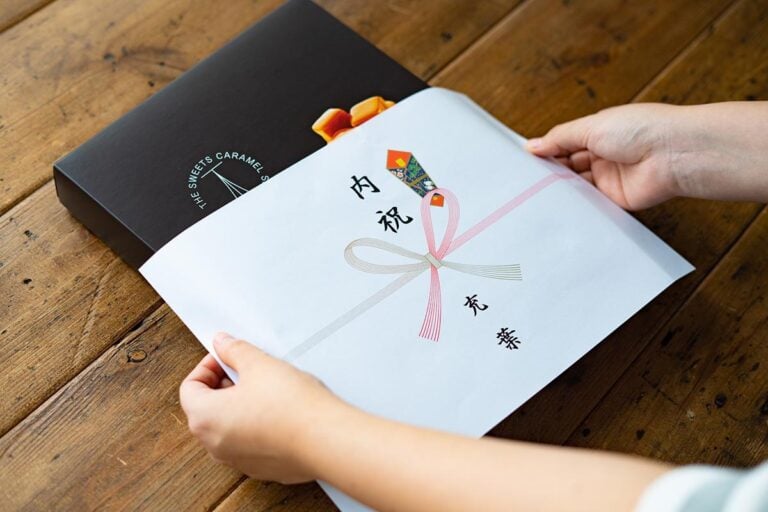
Gift-giving in Japan is a complex and nuanced cultural practice that goes beyond simply exchanging presents. There are various customs and traditions that are observed, which can be confusing for someone unfamiliar with the culture. Having lived in Japan for 4 years, there have been times that I’ve been caught out not understanding the culture and left embarrassed. This article should fill you in on everything you need to know to survive in Japan.
The return gift
One custom that is often hard for foreigners to get their head around is the practice of giving a return gift. This act is known as お返し and it’s expected to be about 50% of the value of the original gift. お返し is seen as a way of reciprocating the kindness of the person who gave the initial gift, and it is considered impolite not to give one. The return gift does not have to be of equal value, but it should show that the recipient appreciates the thought and effort that went into the original gift.
This sounds lovely, doesn’t it? I think it is quite a beautiful aspect of Japanese culture and one that truly shows the modesty of the Japanese. Lots of foreigners I speak to actually dislike お返し. I’ve often heard comments like, “It takes away from the present giving process,” or, “There’s no thought in it, it’s just a mindless process.” I personally disagree, as do many of my friends, but there have been many times that I give a co-worker chocolate just to be given one back (one of my colleagues has a drawer in their desk full of chocolate just for this purpose), and I think, “What was the point in me giving one in the first place?” But, if you want my 2 cents on the custom, I think it is a way for the Japanese to show extra appreciation for your thought, given that due to social etiquette here, they can’t express it through, for example, a hug.
Public face vs private face
Another important aspect of gift-giving in Japan is the concept of 建前 and 本音. 建前 refers to the formal, public face that people present to others, while 本音 is their true feelings and thoughts. In the context of gift-giving, 建前 dictates that one should express gratitude and appreciation for any gift received, regardless of their true feelings.
This means that even if someone receives a gift that they do not like or need, they should still express gratitude and thank the giver. To be honest, this isn’t much different to culture in England and I assume most English-speaking countries. I’m sure we all remember opening socks from our grandma as a child and having to force a smile to show our appreciation. The difference is in Japan is they’ll go over the top to show you how much they appreciate it. I’ve had times when I’ve given a singular cookie to a co-worker and they’ve spent all day talking about how great of a man I am, and how I can do everything well. Remember that when you receive gifts, Japanese people also expect you to really show your thanks, so maybe go over the top a bit more than you usually would.
In order to preserve their 建前, the Japanese don’t open gifts in front of the person who gave it. This is because it can be seen as impolite to show any negative reaction or disappointment if the gift is not to one’s liking. Instead, the recipient should wait until they are alone to open the gift and express their本音 (true feelings).
Gift Wrapping

Another etiquette is to take care when wrapping the gift. In Japan, the way a gift is wrapped is just as important as the gift itself. Gift wrapping is seen as a form of art, and it is expected to be neat, precise, and aesthetically pleasing. I would consider myself quite adjusted to Japanese culture at the moment, but this is one part that I find difficult. In England, it would be funny to wrap really good presents badly. There’s a certain humorous irony to doing so, but here that doesn’t slide. Having seen a variety of present exchanges, I can assure you that the Japanese wrap presents with the precision of a heart surgeon. So you’d better get some experience with scissors and tape if you want to impress at birthday parties here.
When wrapping a gift, you should also take care to use the appropriate type of wrapping paper and ribbon, as well as a suitable colour scheme. Having seen the prices in shops, I can honestly say that for a small gift you might spend as much on the wrapping as you spend on the gift itself.
One interesting thing I’ve observed here is reusing nice wrapping paper or gift bags. I rarely see people rip open wrapping paper, rather opting to carefully remove each piece of tape and fold it up. Lots of my friends have said they’ll often use nice wrapping again. I quite like that. Rather than wrap things just to have it thrown away, the Japanese don’t want to waste them.
Business gift giving
Gift-giving in Japan is not just limited to personal relationships; it is also an important part of business culture. In Japan, it is common for companies to exchange gifts with each other as a way of building and maintaining business relationships. These gifts are known as 名刺交換, and they are usually given when meeting for the first time or as a way of expressing gratitude for a successful business deal.
When giving a 名刺交換, it is important to choose a gift that is appropriate for the recipient’s position and status. The gift should also be of high quality and reflect the giver’s respect and appreciation for the recipient. It is also customary to present the gift with both hands and to express gratitude for the business relationship.
One interesting cultural quirk of Japan is that if you’re given a name card (名刺) you should treat it with all the respect in the world. Many Japanese people consider business cards as their link to the person. As such, they’ll keep them in great condition, often in specialised card folders (imagine Pokemon card folders from the past). Don’t just throw a card in your pocket and forget about it like you would in the West. It’s a bit of a bigger deal here.
Gift-giving in Japan is a complex cultural practice that involves various customs and traditions. From the practice of giving a return gift to the etiquette of wrapping and opening gifts, there are many nuances to be observed. However, at its core, gift-gsiving in Japan is about expressing gratitude, appreciation, and respect for others, and it is a beautiful way of building and maintaining relationships, both personal and professional.















